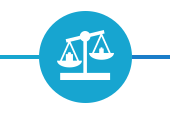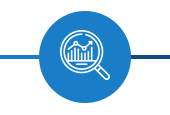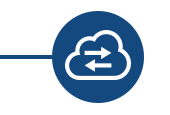Achieve lower prices and better value from Sales Data Providers
by getting Data Supplier Negotiation ‘Right’
(R4) The Right ‘data’, from the Right ‘providers’, at the Right ‘time’, and procured at the Right ‘price’
In our ongoing commitment to enhancing Data Management Strategy for our clients in the FMCG sector, this case study explores how Wessex helps secure lower prices and increased value by implementing the Wessex Data Supplier Negotiation service.
Our client’s organisation spends millions of pounds annually, with the likes of Nielsen/NIQ, IRI/Circana, IQVIA, and a host of other sales data providers, including those who specialise in the growing e-commerce channels, that have their own complexity and seem to continually march forward.
Our client told us they were having unrelenting and eye-watering price increases – there are complex situations that need resolving when many people are involved, and we understand and are skilled at mediating them to a successful outcome. They were dissatisfied with the price-value relationship they were getting – the client was simply not happy.
Moreover, it was all very high profile – everyone within our client’s company seemed to know about the data supplier issues and felt the same way. Consequently, there was an almost desperate desire to lower costs and increase the value from their largest data expenditure, retail sales measurement.
This case study tells the story of how one company saved over £5 million on their annual sales data spend in EMEA alone. They got things ‘right’, working with the rigorous Data Supplier Negotiation service, part of the Wessex Strategic Data Management consulting approach. Read on to learn how the system helped improve ROI.
Following the creation of a now fully fact-based Data Management Strategy, we needed to Compare, Analyse, and where appropriate, implement an RFP Pitch in order to get the lower prices and increased value our client desired.
Compare new data supplier services vs. existing on pre-agreed key evaluation criteria
Review and analyse proposed data between existing and other data suppliers
Involvement with Procurement in pitch process identifying data opportunities
Identifying all the data providers and their capabilities across each market and channel was critical for a successful start to the Data Supplier Negotiation process. In the Compare stage, an exhaustive deep dive and analyses by Wessex meticulously evaluated ‘new’ vs ‘existing’ data suppliers and their service offerings on a host of customised and predefined success criteria, all centred on achieving lower prices and increased value.
This structured process framed factors of coverage, accuracy, timeliness, service, cost, data anomaly resolution, as well as other criteria across each provider; market by market, channel by channel, and category by category.
In the Pitch stage, Wessex was actively involved with the client’s Procurement team identifying cost saving opportunities, providing facts to support better decision making, negotiating better terms, and reviewing master as well as local service agreements; all to ensure that selected suppliers would be aligned with the client’s business goals.
Compare: Collecting data from all providers was no easy undertaking, but once completed, it enabled a comprehensive and independent review and comparisons including:
- HOW data is received – Knowing and agreeing what FORMAT the data feed will be delivered in was critical to ensure client receiving systems and platforms would work efficiently and accurately. Flat files, APIs, and fair pricing must be agreed ahead of time. Data transformation and manipulation is a huge pain point for clients, so without careful planning and negotiation, there would have been huge ‘unforeseen’ costs as data was made ‘ready’ for ingestion. One data provider wanted several hundred thousand pounds to provide the flat files needed, while another provided them at no additional cost
- WHEN data is received – We discovered that the proposed timing of when data was to be received from some providers would ONLY be when all channels and regions were complete, once per month. Our client wanted their new product launches monitored and data reported daily to drive resource allocation decisions. Having this proactively negotiated into agreements was key to supporting these initiatives
- WHAT data is received – Ensuring data contracts deliver the Right Data to support Data Management Strategy objectives was paramount. We found that category definitions were not always consistent between markets for even the same provider. Comparing these revealed data alignment challenges across markets, channels, and retailers
- QUALITY of data received – QA/QC processes varied vastly between suppliers and even within suppliers across markets. Supplier checking varied from none, to sophisticated AI/ML tools – but even then there was not always a plan in place to update rules and learning over time. When and how data checks were carried out needed both exploring and to be included as part of contracts. We also needed to ensure the process contained remedies of common data anomalies including trend breaks, totally different numbers, missing facts (distribution), etc. The terms then included who, how, and when client staff were to be notified, and importantly, who from the data provider ultimately held these responsibilities. Finally, we made establishing, agreeing, and reporting these key delivery metrics part of our Strategic Data Management partnership
Analyse: A variety of analyses were conducted before and during the supplier pitch process to both accurately determine the client’s relative cost investment of sales data, and how well each provider could deliver against the stated objectives:
- The Smart Spend analysis calculated sales data investment as a percentage of internal revenue to establish baselines of real data costs by business unit, category, and segment. These indices were used to pinpoint potential efficiency opportunity areas
- Identifying which markets can transition earlier against which markets are locked into contracts highlighted penalty clauses and restrictions allowing us to minimise unnecessary costs and potential data disruption
- Additionally, a review of data granularity helped us understand if data subscribed was appropriate for all the use cases within the organisation
Pitch: Having strategic alignment with corporate teams and stakeholders was critical for our pitch to be successful. It is not uncommon for them to last many months and have millions of pounds at stake. Reverence to quality and practical application while knowing that every pound spent on data was money not spent marketing and selling the brands was forefront in the Pitch team’s mind. Balancing these perspectives ultimately resulted in increased value and lower prices, creating a win-win between the constituencies (Global/Local and Client/Provider).
- PITCH LEAD – Leading a global pitch with 50+ markets requires experience. With 25 years under their belt and a deep understanding of the many nuances of data and delivery, as well as strong commercial acumen, Wessex was well positioned to lead and deliver value on our Data Supplier Negotiation project
- GLOBAL & LOCAL – A thorough understanding of client team stakeholders and suppliers was needed. Wessex was able to relate to both sides of the equation, including from global and local perspectives. This was key, especially since contracts were being signed in some cases for 5 or more years
- PROCUREMENT PARTNERING – Everyone is an expert at something – and no one can know everything. Working with the corporate procurement team, supporting them to understand the most important elements in the data providers’ value chains, and where margin was earned vs dare we say, where ‘junk fees’ were present, was critical to being fair and achieving increased value from the pitch overall
- PROGRAMME MANAGEMENT RACI – Responsible, accountable, consulted, and informed across the organisation throughout a global pitch, to ensure appropriate reporting to stakeholders, and all relevant parties are properly aware was vital to ensure the entire programme progressed, as per plan
- Direct price reductions – £5 million annual cost savings
- Better quality data
- More granular data
- Faster delivery
- Easier systems and processes (better integration)
- Transparent and better customer service
- Better Business Intelligence that drives GROWTH and EFFICIENCIES in terms of:
- Increasing volume and value (margin)
- knowing and acting faster
- uniting and steering teams in a clear direction
- Telling the right story to investors easily
- Adversarial relationship overcome (Providers to Partners)
- Speed of data delivery improved
- More confidence in data and decisions
- Detailed Collection
- Exhaustive Comparison
- Rigorous Analyses
- Pitch Lead
- Procurement Partnering
- Better Business Intelligence
An end-to-end solution to getting ‘Data Management’ right for Better Business Intelligence – (R4):
Right ‘data’
Right ‘providers’
Right ‘time’
Right ‘price’



